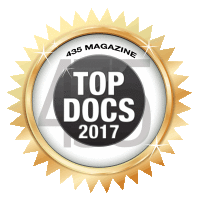By Dr. Poonam Khanna, D.O./Child and Adolescent Psychiatrist
How do I know if my child has ADHD?
Your child is a ball of energy—but how do you know whether it’s a normal characteristic or a symptom of something else? Attention deficit hyperactivity disorder, or ADHD, is prevalent among children but also very difficult to diagnose because many of the symptoms are also perfectly normal at a particular age or point in the development spectrum. To the point, some people reach adulthood without ever knowing they have ADHD.
Diagnosing ADHD is complicated further because there is no one-stop test for the disorder. A blood or urine test will not determine whether your child has ADHD—instead, it’s up to the experienced minds of doctors. An ADHD diagnosis is reached after a medical professional observes the child’s behavior and has discussions with the child, parents—and teachers. Teachers are an important factor in the ADHD equation, as they often suspect the disorder first. Poor grades can be evident of an inability to focus on one topic at a time, and outbursts in class may reflect an inability to suppress impulses.
If you decide to get your child evaluated for ADHD, your pediatrician or a mental health professional will do a thorough evaluation. There are several components that are needed in order to make a diagnosis of ADHD. A physical exam and an assessment of how the child is performing behaviorally, socially and academically is extremely important. This will be based on feedback from the parents, any other caregivers, teachers, and others who have consistent interaction with the child or adolescent. It is also important to get the child’s health history as well as the family history.
How is ADHD treated?
If the diagnosis is positive, begin appropriate treatment immediately. Certain medications can help calm your child’s hyperactivity. Believe it or not, the most effective ADHD medications are stimulants. In many cases, stimulants actually have an opposite effect on hyperactivity. There are several short and long-acting stimulants that are considered the gold standard for medication treatment of ADHD.
Nonstimulants have recently gained popularity in treating ADHD. Strattera and Clonidine are approved by the FDA for treatment of ADHD. No matter what your child’s treatment, the prescribing doctor should keep a close watch on dosage and side effects to make sure the treatment is most effective.
ADHD is most successfully treated with a combination of medication and behavior modification therapy. Helping your child to control his or her behavior can be paramount for success in school and social settings. Recently, ADHD was approved as a condition qualifying for special education. Your child might benefit from extra or modified help at school.
As your child grows, ADHD can effect his or her self-esteem because of the affect it can have on social relationships and academic achievement. If your child is struggling because of ADHD, you can help. When your child does good, offer praise immediately. Contribute to a positive self-esteem as much as possible. Implement a daily routine, and stick with it. This includes discipline, meals, sleep and playtime. Keep the rooms in your house simple; do away with any decorations that could be distracting. Finally, simplify instruction. Rather than telling your child to “Clean up after dinner,” tell him or her, “Put your dishes in the sink. Wash your hands. Wipe down the table.”






